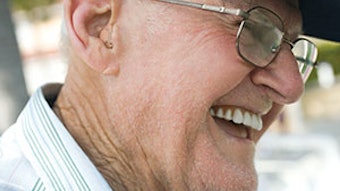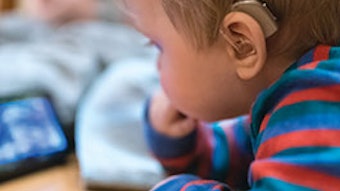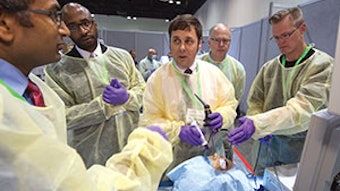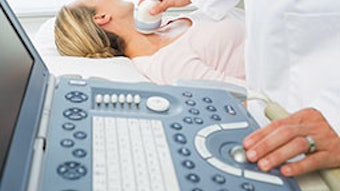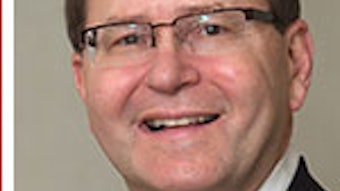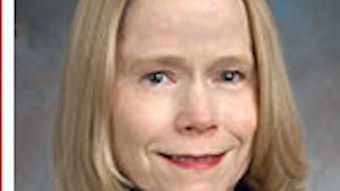The impact of hearing loss on working-aged individualsExpanded from the print edition
By Dale Tylor, MD, MPH, Washington Hospital, Fremont, CA, Media and Public Relations Committee May is Better Hearing and Speech Month, a time to raise public awareness about hearing and speech issues as well as available treatment options. This year we are focusing on the impact of hearing loss as related to age, from infants and children to working-age adults to the elderly. Otolaryngologists treat hearing loss in patients of all ages, helping to mitigate the impact hearing loss can have on one’s quality of life. You can learn more about Better Hearing and Speech Month online at www.entnet.org/BetterHearingSpeechMonth.. The most common chronic sensory disorder in adults is hearing impairment, and it impacts about 16 percent of Americans aged 20-69 in at least one ear, totaling more than 29 million people in this country. Risk factors for hearing loss include male gender, Caucasian race, and history of smoking, diabetes, cardiovascular disease, and noise exposure, with increasing education being protective.1 The impact of hearing loss on employment and income is marked. Compared with peers with normal hearing, those with hearing loss are more likely to be unemployed or partially employed (adjusted odds ratio, 2.2), more likely to have no wage income whatsoever (adjusted odds ratio, 2.5), and have a lower annual wage by almost $8,000 ($23,481 vs. $31,272), but not be more likely to receive Supplemental Security Income.2 Those with hearing loss may be looked over for a promotion or raise, and may be less comfortable with advocating for themselves at the workplace. Psychomotor speed and executive function can be impaired with hearing loss in later middle age, to the extent that a drop of 25 dB in hearing was equivalent to an age difference of seven years. Hearing aids seem to improve cognitive function scores of those with hearing loss.3 It can be difficult to remember something that wasn’t heard correctly in the first place. Hearing loss can have a dramatic negative impact on one’s relationship with their significant other. It has been demonstrated that the hearing loss of a spouse can be predictive of poorer physical, psychological, and social well being in their partner, and this seems to be even more prominent when the male partner is the one with the hearing loss.4 Men in their 20s to 50s with acquired bilateral sensorineural hearing loss, when compared to normal hearing men, have poorer sexual health in all domains examined including erectile function, orgasmic function, sexual desire, intercourse satisfaction, and overall satisfaction.5 Otolaryngologists should question patients about their hearing, even when it is not their presenting complaint. Diagnosing this problem, and treating it, can lead to dramatic improvements in the patient’s (and their loved ones) socioeconomic status and quality of life. References Agrawal Y, Platz EA, Niparko JK. Risk factors for hearing loss in US adults: data from the National Health and Nutrition Examination Survey, 1999 to 2002. Otol Neurotol. 2009 Feb 30(2):139-145. Jung D, Bhattacharyya N. Association of hearing loss with decreased employment and income among adults in the United States. Ann Otol Rhinol Laryngol. 2012 Dec: 121(12):771-775. Lin FR. Hearing loss and cognition among older adults in the United States. J Gerontol A Biol Sci Med Sci. 2011 Oct 66(10):1131-1136. Wallhagen MI et al. Impact of self-assessed hearing loss on a spouse: a longitudinal analysis of couples. J Gerontol A Biol Sci Med Sci. 2004 May 59(3):S190-196. Bakir S, et al. Relationship between hearing loss and sexual dysfunction. J Laryngol Otol. 2013 Feb 127(2):142-147.
By Dale Tylor, MD, MPH, Washington Hospital, Fremont, CA, Media and Public Relations Committee

The impact of hearing loss on employment and income is marked. Compared with peers with normal hearing, those with hearing loss are more likely to be unemployed or partially employed (adjusted odds ratio, 2.2), more likely to have no wage income whatsoever (adjusted odds ratio, 2.5), and have a lower annual wage by almost $8,000 ($23,481 vs. $31,272), but not be more likely to receive Supplemental Security Income.2 Those with hearing loss may be looked over for a promotion or raise, and may be less comfortable with advocating for themselves at the workplace.
Psychomotor speed and executive function can be impaired with hearing loss in later middle age, to the extent that a drop of 25 dB in hearing was equivalent to an age difference of seven years. Hearing aids seem to improve cognitive function scores of those with hearing loss.3 It can be difficult to remember something that wasn’t heard correctly in the first place.
Hearing loss can have a dramatic negative impact on one’s relationship with their significant other. It has been demonstrated that the hearing loss of a spouse can be predictive of poorer physical, psychological, and social well being in their partner, and this seems to be even more prominent when the male partner is the one with the hearing loss.4 Men in their 20s to 50s with acquired bilateral sensorineural hearing loss, when compared to normal hearing men, have poorer sexual health in all domains examined including erectile function, orgasmic function, sexual desire, intercourse satisfaction, and overall satisfaction.5
Otolaryngologists should question patients about their hearing, even when it is not their presenting complaint. Diagnosing this problem, and treating it, can lead to dramatic improvements in the patient’s (and their loved ones) socioeconomic status and quality of life.
References
- Agrawal Y, Platz EA, Niparko JK. Risk factors for hearing loss in US adults: data from the National Health and Nutrition Examination Survey, 1999 to 2002. Otol Neurotol. 2009 Feb 30(2):139-145.
- Jung D, Bhattacharyya N. Association of hearing loss with decreased employment and income among adults in the United States. Ann Otol Rhinol Laryngol. 2012 Dec: 121(12):771-775.
- Lin FR. Hearing loss and cognition among older adults in the United States. J Gerontol A Biol Sci Med Sci. 2011 Oct 66(10):1131-1136.
- Wallhagen MI et al. Impact of self-assessed hearing loss on a spouse: a longitudinal analysis of couples. J Gerontol A Biol Sci Med Sci. 2004 May 59(3):S190-196.
- Bakir S, et al. Relationship between hearing loss and sexual dysfunction. J Laryngol Otol. 2013 Feb 127(2):142-147.
